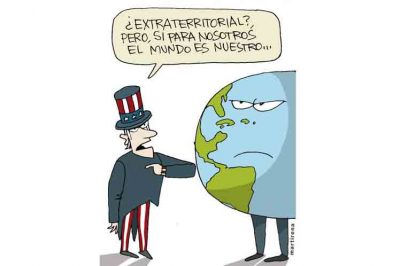Helms-Burton Law, Internationalization Weapon to Blockade Cuba

The Helms-Burton Act, the main tool for the internationalization of the blockade against Cuba, arrived today 24 years after it was signed by the then President of the United States, William Clinton.
Officially named as the Cuban Freedom and Democratic Solidarity Law, this instrument contemplates the denial of credits and financial aid to countries and organizations that favor or promote cooperation with the island.
Since its entry into force, the Department of State notifies by investor letters to companies investing in the so-called confiscated properties, a result of the recovery of companies and private land to state property after January 1, 1959.
Washington insists on that excuse despite the legality established during the nationalizations in Cuba, confirmed in the compensation agreements then proposed by Havana and denied by the White House.
In contradiction with international law, the law establishes among its articles the deprivation of foreign investment in the largest of the Antilles, while granting authority to owners or relatives of owners of said assets before 1959.
On July 16, 1996, the controversial Title III of the Helms-Burton came into force; however, Clinton himself simultaneously issued an order for temporary suspension for six months of part of the section.
After the succession of presidents who postponed it, Donald Trump opened in 2019 for the first time the possibility of lawsuits in the United States courts against Cuban companies included in a list drawn up by the State Department.
In this way, it established the permission for US nationals to sue Cuban people and companies or third-country companies that ‘traffic in US property’ nationalized on the island.
The activation of Title III was described by the Cuban authorities as’blackmail to the world’, for codifying the economic, financial and commercial blockade against Cuba, now with an international character.
To date, several North American companies have been the target of lawsuits, among which stand out the technological giant Amazon, the North American airline American Airlines and the cruise company Carnival Cruise Lines.
*
Note to readers: please click the share buttons above or below. Forward this article to your email lists. Crosspost on your blog site, internet forums. etc.

